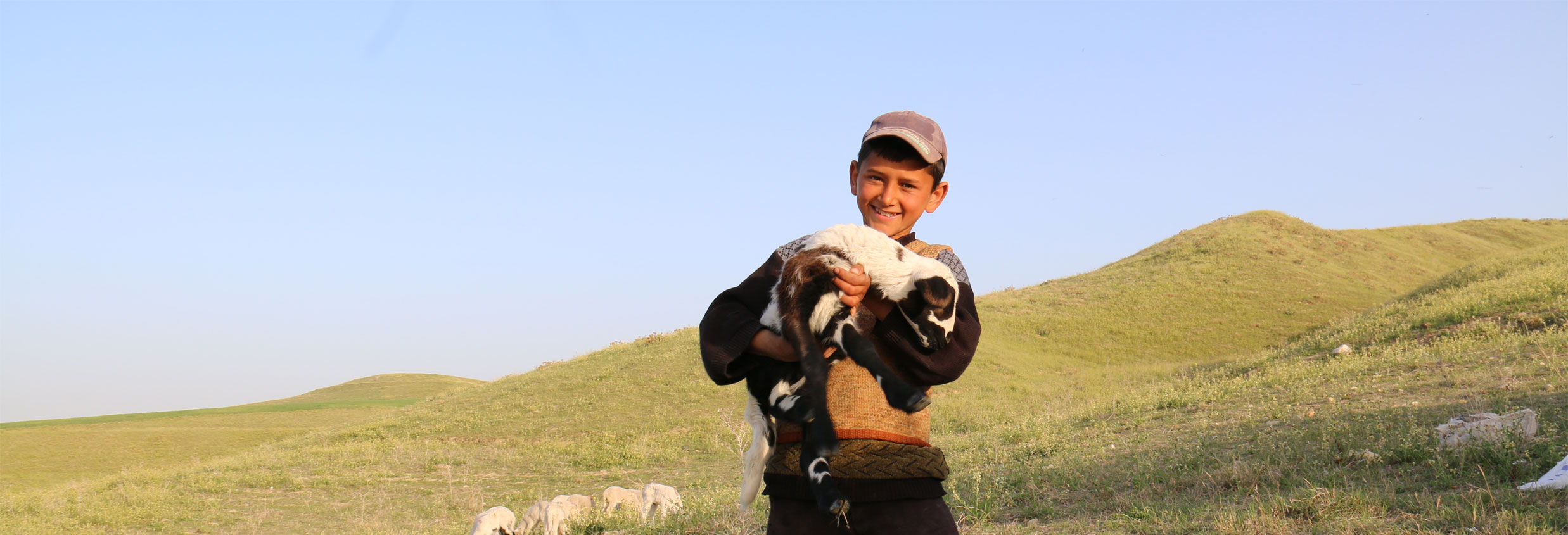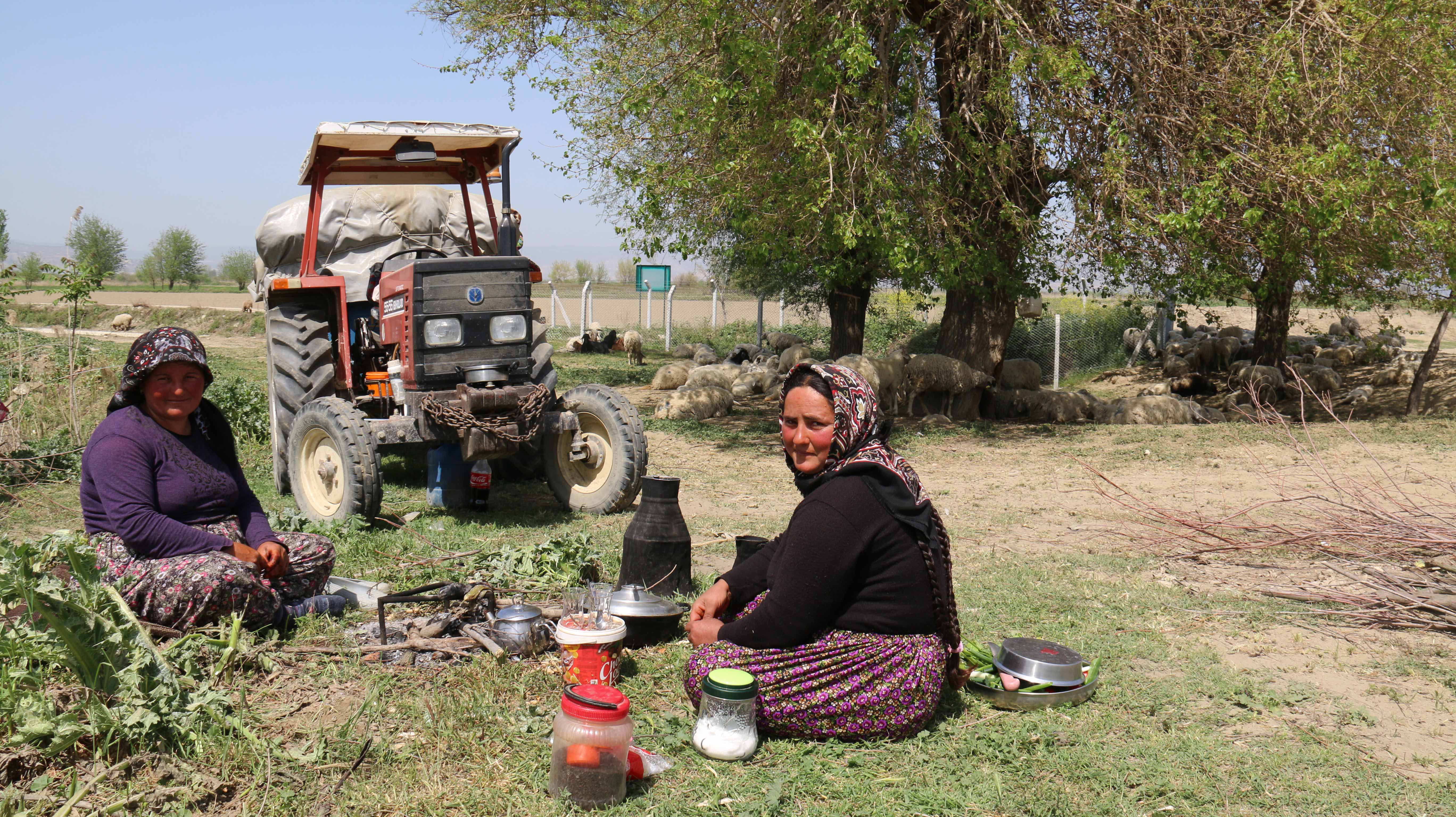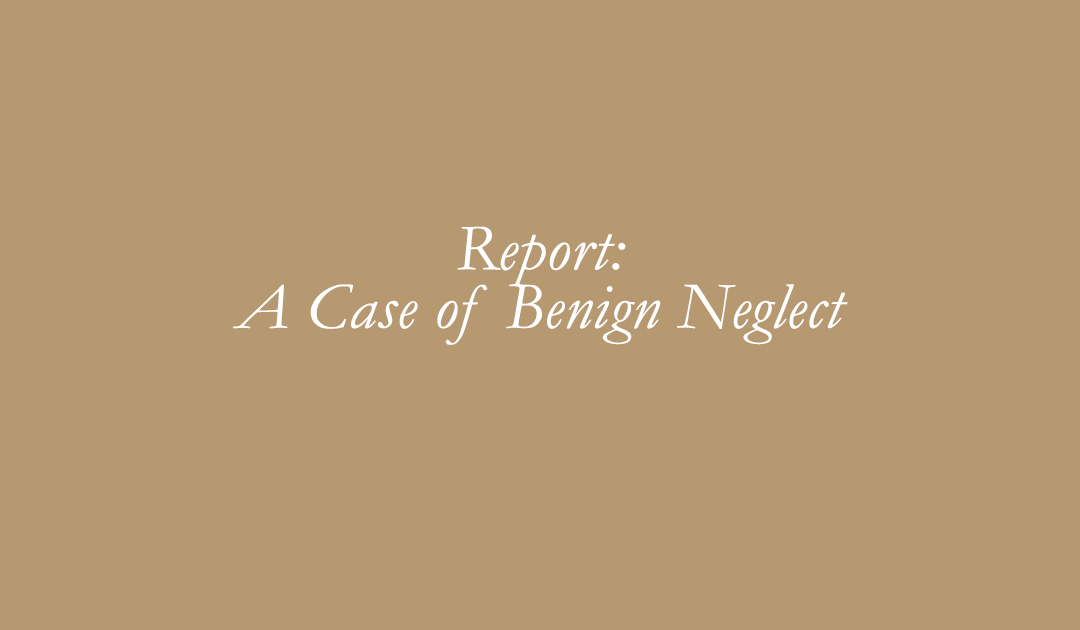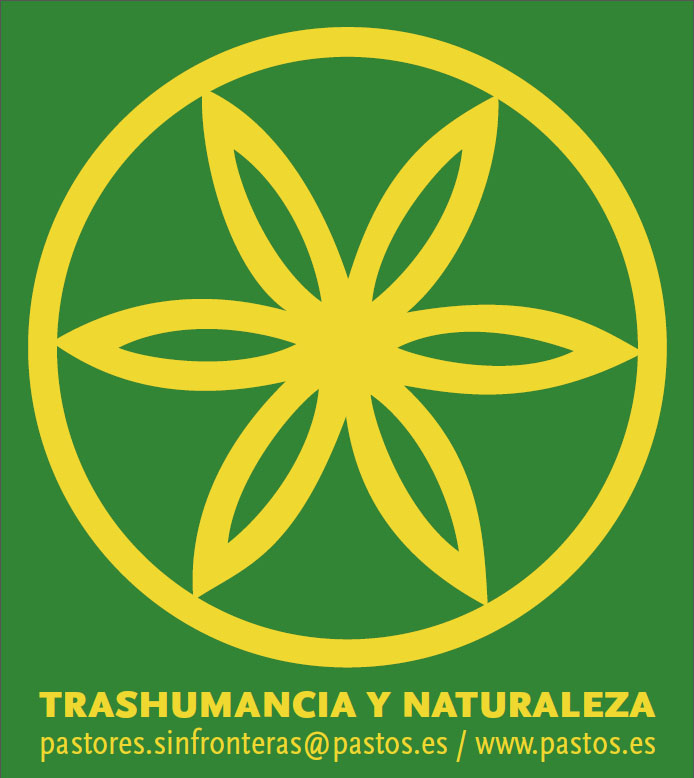All smiles – a young boy is happy to miss school as he help his family with the spring migration. © Engin Yılmaz, Yolda Initiative

All smiles – a young boy is happy to miss school as he help his family with the spring migration. © Engin Yılmaz, Yolda Initiative
What is
mobile pastoralism?
It’s a form of subsistence farming in which herds of livestock are moved across landscapes seasonally in search of forage and water.
It’s a practice that occurs in rangelands and pastures, which cover half of our Earth’s surface.
It’s a livelihood on which 500 million people worldwide depend on for food and income (almost 8% of the entire human population).
Mobile pastoralism is a hugely diverse practice. It can be one person with a handful of sheep or a whole tribe or caravan with thousands of animals.
What is
mobile pastoralism?
It’s a form of subsistence farming in which herds of livestock are moved across landscapes seasonally in search of forage and water.
It’s a practice that occurs in rangelands and pastures, which cover half of our Earth’s surface.
It’s a livelihood on which 500 million people worldwide depend on for food and income (almost 8% of the entire human population).
Mobile pastoralism a hugely diverse practice. It can be one person with a handful of sheep or a whole tribe or caravan with thousands of animals.
Mobile pastoralists are stewards of local natural landscapes.
For the past 10,000 years mobile pastoralists and their herds have been moving through rangelands in search of forage and water, making the most of land unsuitable for farming in ever changing and challenging environmental and climatic conditions.
This traditional form of extensive livestock husbandry has persisted over the centuries because of its symbiotic relationship with nature. As herds graze, their movements through the landscape create unique habitats for many different animal species; their coats, hooves and droppings disperse seeds maintaining native plant populations; their eating manages natural biomass which if left untouched becomes fuel for wildfires; their drinking puts less pressure on resources as they consume water where available; their manure adds to the nutrient cycle, enriching and strengthening the soil – and above all, mobile pastoralism sustains environments that contribute directly to the fight against climate change.
Why is mobile pastoralism important?
Moving in search of forage and water means herds drink from naturally occuring streams and ponds, putting less pressure on water resources.
Did you know that to rear one cow intensively you’d need 50 litres of water per day? That’s the equivalent of 1 bathtub full of water per cow per day!
Mobile pastoralists rely on a combination of ‘green’ water (rainwater), ‘blue’ water (streams, ponds or reservoirs) and the water found in plants to keep their animals hydrated making their water footprint close to zero.
Rangeland ecosystems, and especially pastures, have the amazing ability to capture and contain large amounts of carbon dioxide in their soils.
Degraded or tilled lands can release large amounts of CO2 into the atmosphere, so it’s essential that soil is kept strong and healthy. Combined, the Earth’s land and ocean sinks absorb almost half of all carbon dioxide emissions produced through human activities.
Mobile pastoralists play a crucial role in maintaining landscapes vital for the fight against Climate Change.
Mobile pastoralism requires very little fossil fuel energy to raise livestock, as it relies less on industrial feed, veterinary products or transportation – dramatically reducing its Green House Gas emissions, pollution and carbon footprint.
Local breeds well adapted to their natural environments are free to live in the great outdoors, making them healthier and able to provide higher quality dairy, meat and wool than their intensively farmed counterparts.
These and many more scientific arguments detailing the environmental, climatic, economic and social benefits of mobile pastoralism are explored in depth in “Mobile Pastoralism in the Mediterranean: Arguments and evidence for policy reform and its role in combating climate change”.
Despite the practice’s long history, today ignorance, social prejudice, and authorities’ enforcement of harmful policies and legislation are threatening the livelihoods of mobile pastoralists, and along with that the incredible service they offer at the cost of none and to the benefit of all.
Without mobile pastoralists to look after our local natural environments, we will all very quickly experience climatic, environmental, cultural and health damages we cannot reverse.
We must act to support these unique communities by lobbying for their rights and policies that protect their way of life, lest we lose these special caretakers of our landscapes forever.
To try and respond to these challenges DiversEarth, Yolda Initiative and Trashumancia y Naturaleza have set up Roads Less Travelled.

Stopover during spring migration of Geygel Yörüks in Turkey. While the herd is shading under trees, it is time to brew tea. © Engin Yılmaz, Yolda Initiative
Latest Resource
Mobile Pastoralism and the World Heritage Convention is our new report on mobile pastoralism and World Heritage sites.
Read it here.
LATEST NEWS

Report: A Case of Benign Neglect
The UN Environment Programme Report: "A case of benign neglect: Knowledge gaps about sustainability in pastoralism and rangelands", which we have contributed to, directly responds to one of the UN resolutions which acknowledges the dearth of information on pastoralism...
Follow
Join up with us on social media using @RLTGlobal #RLTGlobal
Latest Resource
Mobile Pastoralism and the World Heritage Convention is our new report on mobile pastoralism and World Heritage sites.
Read it here.
LATEST NEWS

Report: A Case of Benign Neglect
The UN Environment Programme Report: "A case of benign neglect: Knowledge gaps about sustainability in pastoralism and rangelands", which we have contributed to, directly responds to one of the UN resolutions which acknowledges the dearth of information on pastoralism...
Follow
Join up with us on social media using @RLTGlobal #RLTGlobal



